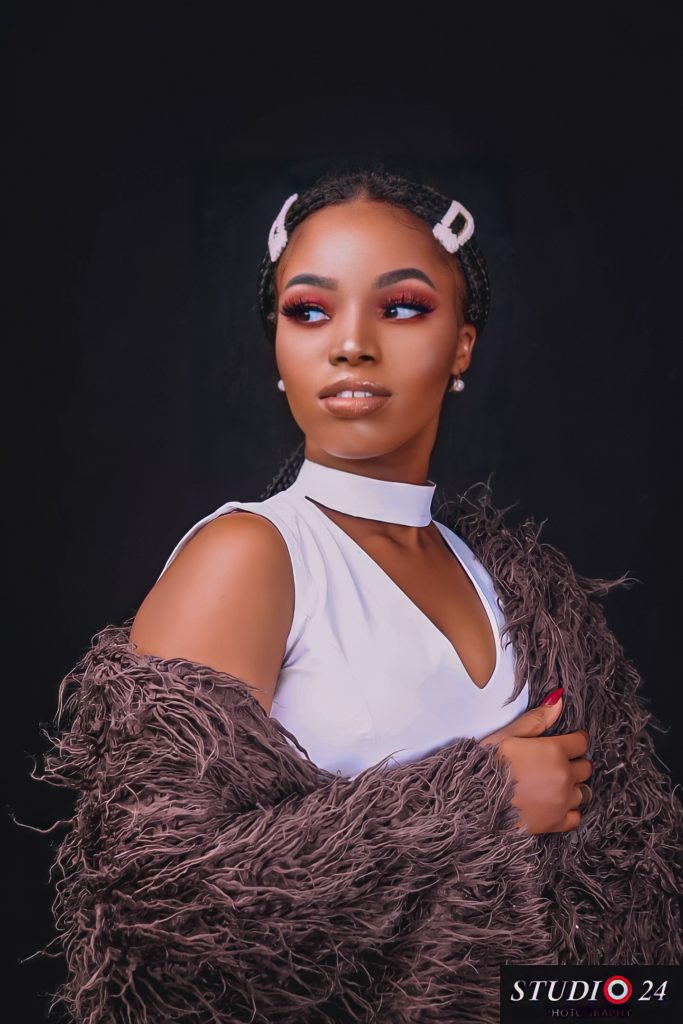Creator Spotlight is a weekly series celebrating young Nigerians in the creative industry doing unique things. Everyone has a story, and Zikoko wants to tell it.
Hi, I’m Lolade. I’m a writer, editor and musician. I’m reclusive and not good with conversations because I’m socially awkward. It’s getting better now, but there was a time when it felt like people were pinching me just by talking to me. I’d choose dark elements over joy and fun. I’m like Wednesday Addams; I’ve loved her since I was a child. I love horror, but more than that, I love psycho-thrillers. I have a weird relationship with animal protein in the sense that I still eat it, but I don’t enjoy the taste or the thought that it was once alive. I’m vegan, but just lazy because it’s hard work. I was also a child genius.
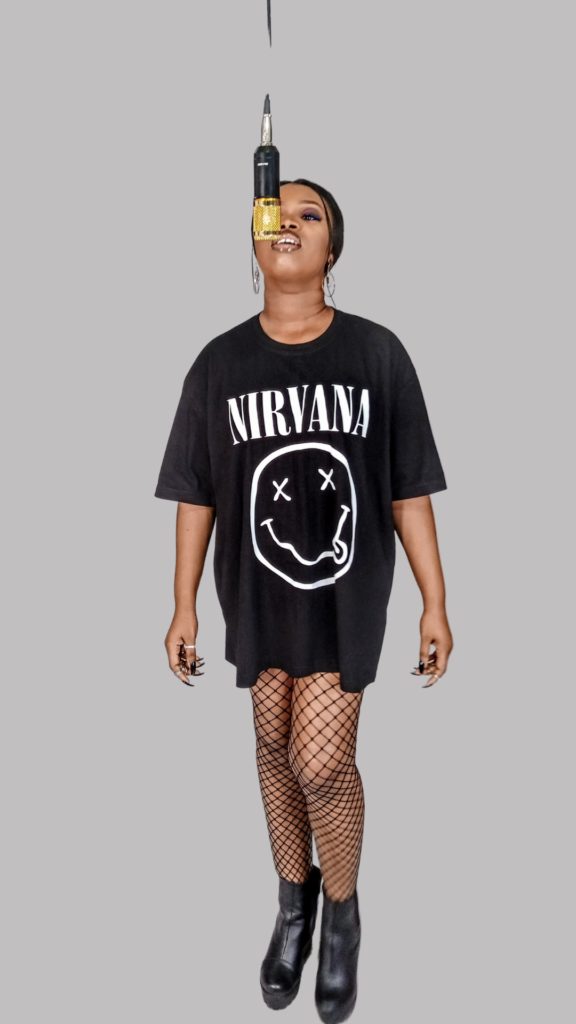
Tell me about the child genius bit
I entered JSS 1 at age eight because I skipped four classes in primary school. I was good at school, so everybody assumed I’d study medicine. That must be where my social awkwardness came from. My classmates were years ahead of me, so I was always worried I’d say something stupid. I had a baby voice, and people always made sure to point that out. I was always hung up about whether what I’m about to say would make any sense.
Just because I was smart, people were like, “You have to go to science class.” But I’ve been artistic for as long as I can remember. I love to draw. As a child, I’d take all my picture storybooks, recreate them page by page and paste the pictures all over my room walls. Everyone just ignored that and said, “You’ll sha still study medicine.”
On school variety days, the social people would get to participate in dance and drama, but I had to do debates, spelling bees and math competitions. I’d win the competitions, fair, but I just wanted to dance, sing and do all those other things. But I’d always hear, “No. That’s not you.” I was sad and lonely because people had put me in a box, making me reluctant to be around others.
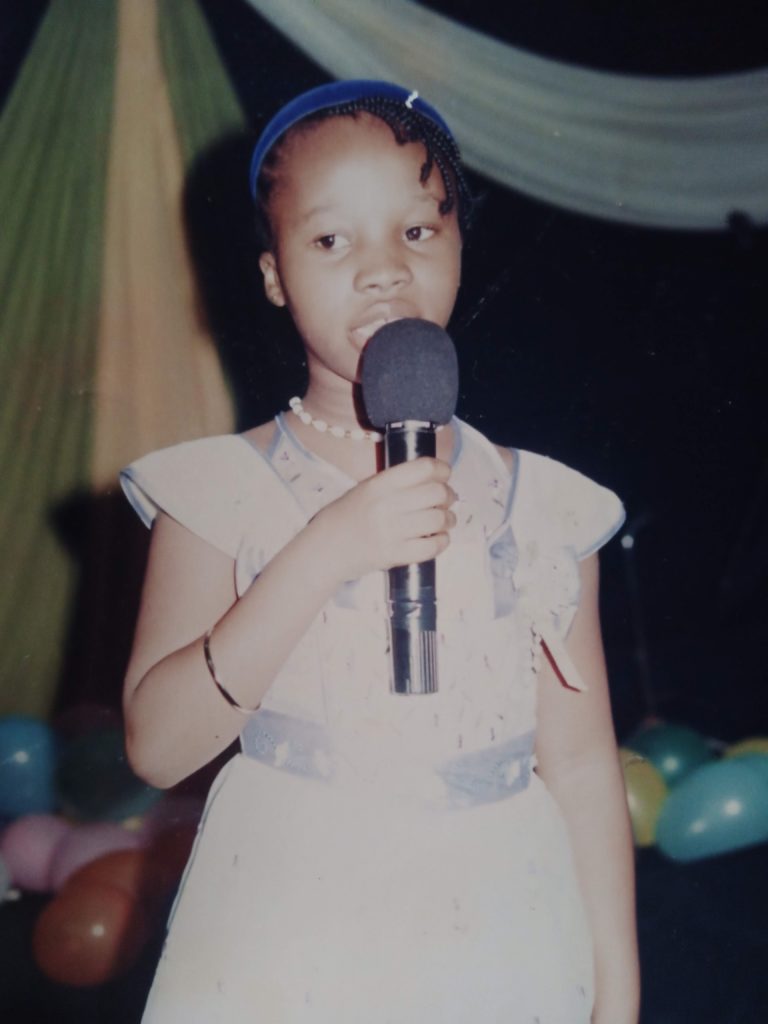
Was your reluctance a growing-up thing, or did it stick with you?
By university, I’d gotten used to being the strange one. I just wanted to be on my own, so I’d destroy my friendships without knowing. I’d be friends with some people for several months, and then suddenly, I’d just start acting up. It was like an out-of-body experience. I’d start doing all sorts of stupid things, and before you know it, they can’t stand me.
What did you study at uni?
Architecture, which is like medicine. You need to be passionate to study it, or you’d be sad. The late nights at the studio, drawing buildings from skeleton to roof — I still have chronic back pains from my years in architecture school. I hated it so much I had a panic attack in my first semester. Studying architecture is one of my biggest regrets in life. And to think my family thought it was a good compromise between medicine and visual art. I never practised architecture for one day.
How did you go from reclusive genius to architecture hater to musician?
I’ve always loved music.
One of my biggest issues in life is how I’m good at and interested in too many things — drawing, storytelling, singing. When I graduated from university at 19, I didn’t know what I wanted to do with my life. But I’ve always sung in church and school. I always joined the choir, but no one paid attention to me. Because of that, I believed my voice was average, so I even started singing off-key on purpose. No one knew I could sing in school, except my roommates.
I didn’t know where to start with music until I went to Calabar for NYSC in 2016. I stayed at my mum’s friend’s house whose husband was a commissioner, and a lot of young people would just come over to hang out with them. One day, I met this woman who just opened a music school. She talked about her passion for music, and how she started as a dancer and had won several competitions. She was better at dancing, but she wanted to sing, so she started taking vocal classes. I was so excited by her story.
She gave me her number, I visited her school, and that was how I started taking vocal classes. In my very first class, she sat at her piano and just said, “Sing”. I did. She was like, “Wow. See sweet voice oh.” I was like, “Oh, me?” It was then I started to think I could actually be a professional singer. We were both dreamers. She made me feel like I could do the seemingly impossible things I dreamt of doing.
I can’t put into words how I feel just listening to music or watching someone perform. It was refreshing to meet someone who understood that. She taught me how to exercise my voice, perform with it, make it convey emotion and pass a message. When I applied these techniques, I sounded almost like the great performers I admired.
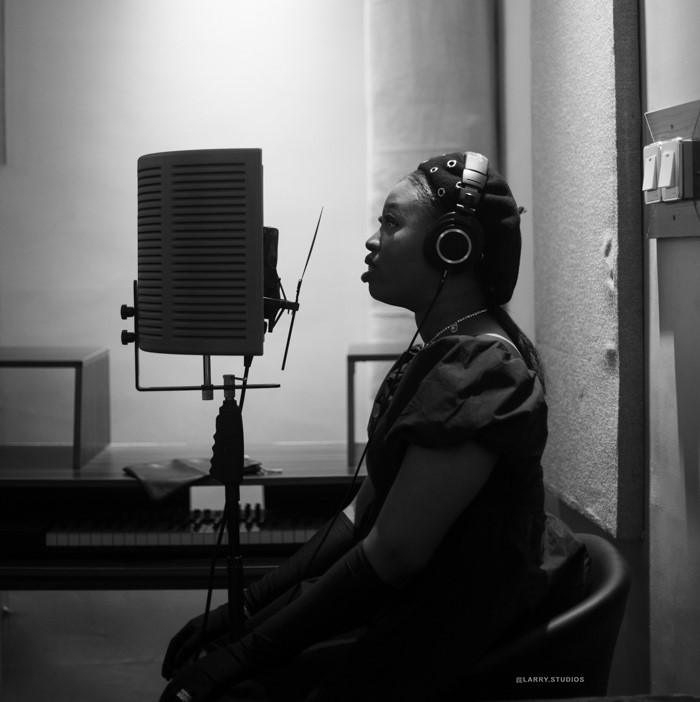
Since you now know all the techniques, do great music performances still impress you?
I won’t say I know all the techniques o. Learning never stops. But I criticise a lot more. Sometimes, I hear Mariah Carey sing, and I’m like, “This woman is straining her voice here”. But I don’t do that in public o. MC is a vocal goddess, please. But it’s also made music more achievable. The classic composers — Beethoven, Mozart, etc. — made great symphonies because they had all the time and support from the church and state, not some superior talent.
What else do you do besides being a regular hater?
I hate on things for sport. Hating what most people like is training. If you can argue against what most people argue for, it would arm you with the skill to have an argument for anything at any given time and to get out of any situation.
I’m also a good writer. But I write mostly fiction. I’ve been working on a book since 2016. I actually finished 500 pages of a first draft in 2019, but I’ve been rewriting it since then.
For what audience — millennials, young adults? Or is it for everyone?
It’s a family saga that cuts through five generations of women. So there’s a section that could be YA, but the book as a whole is an adult read. I want it to be a timeless piece.
What happened after the singing lessons in Calabar? How did your music career kick-off?
I don’t think my music career has kicked off yet, TBH. I’m still experimenting and figuring things out. The music industry is a lot.
As part of my training in Calabar, I had to make a cover video and post it on YouTube. So I did Asa’s Bibanke. As soon as I got back to Lagos, I started posting more covers on social media, and everybody was shocked to see them. My first real performance was during a church Independence Day celebration in 2016, where I sang the national anthem.
I got a lot of engagement on my covers because nobody knew I could sing — not even my extended family members, many of whom were quite disappointed I chose to pursue something “unserious”. I’ll never forget my uncle calling me over the phone to tell me I’d never succeed as a musician because I was an efiko, and I should just give up now. He said I was making a fool of myself.
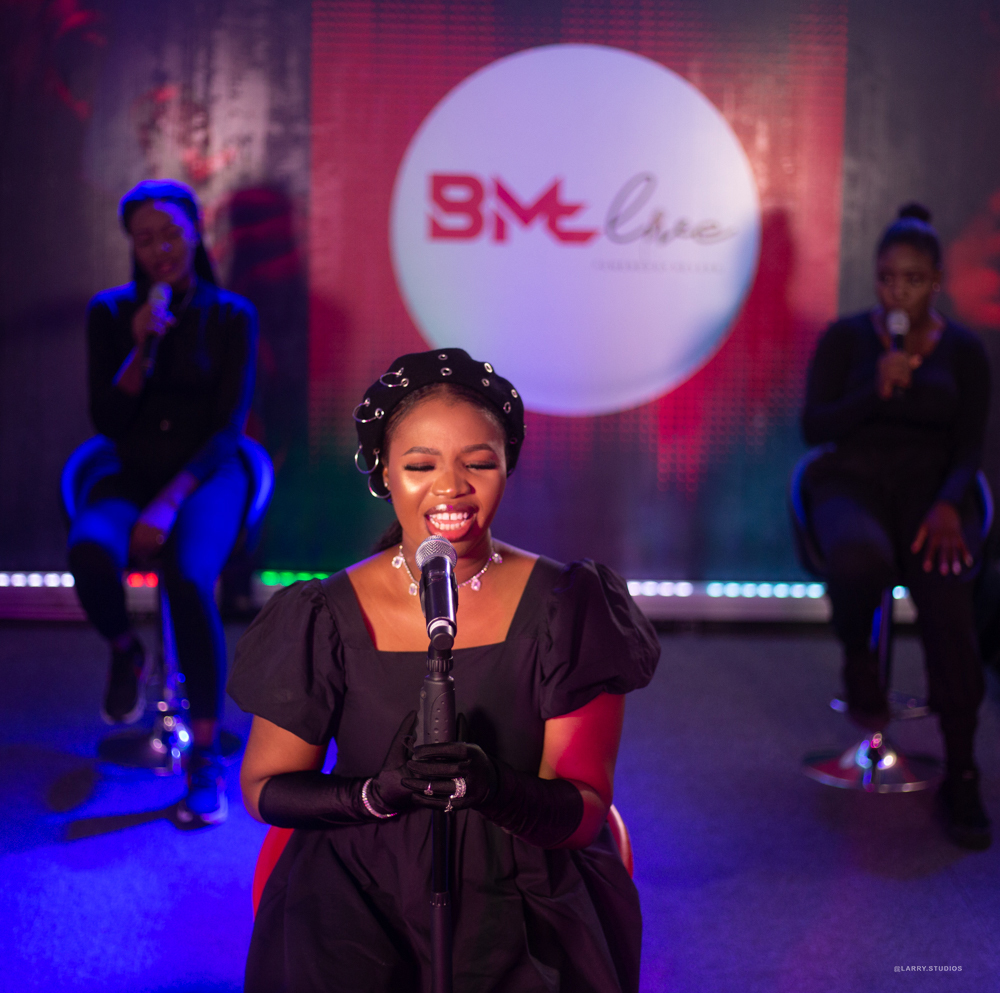
What keeps you going despite the struggles?
The numbness I feel with everything else.
Meanwhile, my out-of-body experiences happen most strongly on stage. When I start performing a song I love, in front of people, there’s this joy I feel. Nothing else makes me genuinely happy like that. Regardless of whether I’m making money from it, I feel so proud of myself when I’m just singing. When I was younger, one of the happiest things that ever happened to me was when the Disney Channel came to our TVs. I remember being so amazed by the movies and shows. I’d watch them over and over just to learn the lyrics to the songs.
How did writing and editing now come in?
In secondary school, I started writing stories in notebooks just because my best friend could write and I was jealous. We both loved reading novels, so it was kind of natural. In uni, I led the student press and media team. Some months after NYSC, I started freelance writing to support myself while shooting and posting my covers, because my parents were worried I might turn into a layabout.
So your parents weren’t supportive?
They were, and still are, in their own way.
They had friends in the gospel music industry, and they’d always introduce me to them. But I remember one time, this particular friend of theirs listened to me sing, and we talked about what I could do to kickstart my career, like coming to his studio to record. I told my father about our conversation. He later said he’d talked to the man privately and he’d advised that, though I had promise, I should get a job first. So I got a job.
A few weeks later, the man called and invited me to meet with some people. I responded with, “Oh, I’m at work. Can we do it during the weekend?” He sounded really surprised. From that point on, he hasn’t invited me for anything or tried to help my career. It’s clear now that my dad lied about the man’s advice, but I stayed at the job for the next four and a half years. I got to meet many people in the entertainment industry there, and I’d always be like, “What the fuck am I doing here? Why am I meeting people who can help my career but not being able to leverage it?”
In hindsight, I know none of these people are interested in helping anyone’s career. A whole machine exists in the music industry that nobody ever tells you about. Nobody really wants to sign you or make you a star. There are way too many aspiring musicians for that, and 90% of them are extremely good. Some are even multi-skilled and know big names in the industry, but still don’t get signed.
The only thing that helps is a music executive’s perception of you and how much money they’d make immediately, or a certain storyline or criteria you fit. No one really knows what that criteria is until they see it.
I know you have a song out called “happy”. Are you working on any new music?
I have seven unreleased songs, and I’m working on more. But I don’t know when I’ll drop them. I hope “happy” will be the only song I’ll drop on my own. It was an experiment to see what it would be like to drop a song and promote it on my own, and how far it’ll go organically.
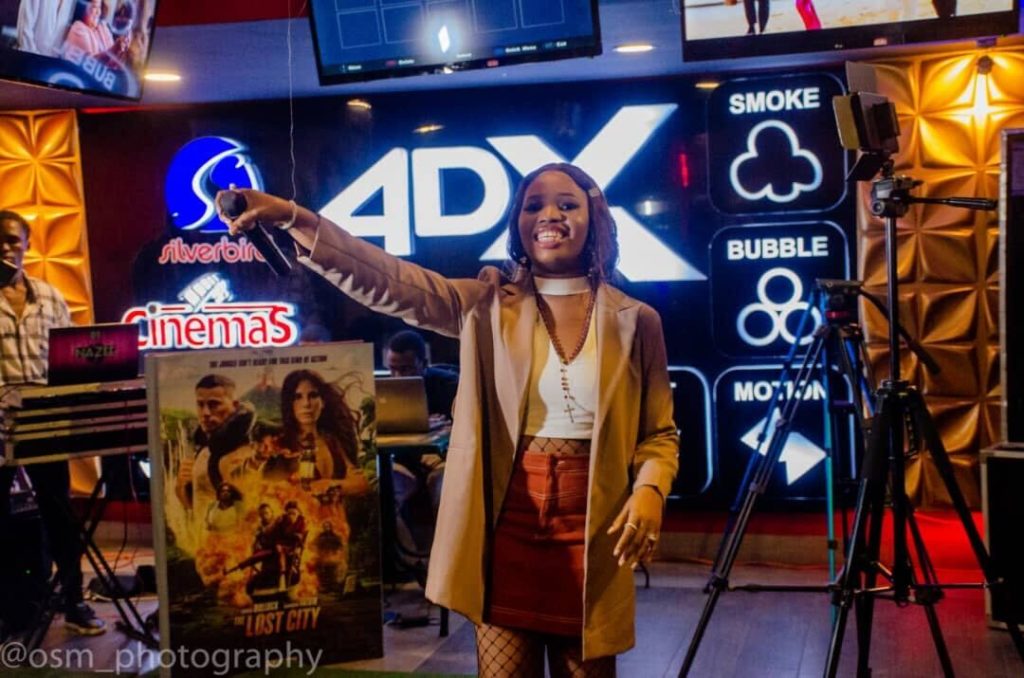
Why are you hoarding your songs?
What else will I use to pitch to potential investors? One thing about creative projects is only 20% of the budget goes into producing the art. 80% should be for promoting it. Right now, I only have enough to produce my art. I don’t want to waste it with zero-budget promotion. That’s how it’s done in K-pop. They spend $1m to produce a song and video and reserve $9m for aggressive promotion.
Is this you soft-launching yourself on the internet as a K-pop fan?
I’m lowkey trying to refrain from using Blackpink as an example.
2023 will be about getting sponsorships, which could come in many forms. There’s the record deal everyone’s striving for, there’s actual sponsorship or investment, management deals, so many options.
Which artists influence your music?
I have too many influences. I listen to all kinds of artists — new, old, legendary, underground, local, western, Asian — and they all influence my music. But to summarise, I’d start with my Nigerian love, Tiwa Savage. I love her staying power. More than everything else, I love that she started again at an advanced age and still killed it. She inspires me to keep going.
I’m fascinated by tragic icons who’ve passed, like Michael Jackson, Kurt Cobain, and my fave, Aaliyah. I also like hearing strong, sonorous vocals, people who sing with pure, bright tones. And I’m inspired by people who really get into performing their songs — choreo, acting, complex stage production. Nigerian artists don’t do that, and I get why. Nigerian fans prefer when you shout and hype and just vibe with them. They don’t send all the other oversabi.
Do you have a favourite career moment?
My favourite career moment happened recently. I attended an industry event with a lot of influential people to support my mum. She’d just completed a music business and management program because she wants to help me in this struggle.
The organiser invited her to a reserved seat right in front — of course, I tagged along. He especially recognised her in his speech, saying the industry tries hard to encourage Nigerian parents to support their children’s music careers. But my mum didn’t just show interest, she participated in the program, all the projects and was even involved in planning the event.
Once the event ended, an influential woman in the industry walked up to her and said, “It’s so good to finally meet you, Ma.” I literally froze when I saw her stand in front of me. She turned to me, greeted me and shook my hand. I was shooketh. And that’s how people kept coming to my mum, and through her, I got to meet different managers of big artists.
There was this Jamaican music exec who said to me, “You have a mum that supports and is actively involved in your career. You’ll definitely go places.” The whole night was the highest of highs for me.
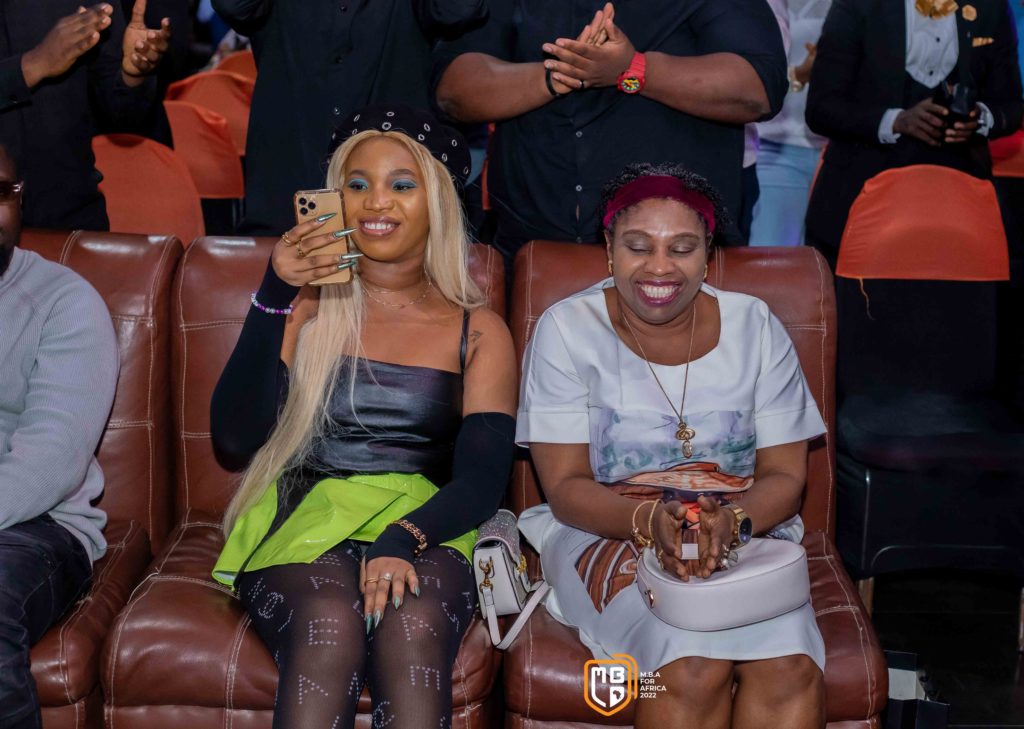
How much more do you hope to do with music in the next couple of years?
Just because I’m obsessed with music, I know I’ll have an entertainment company structured just like K-pop companies.
After NYSC, I was obsessed with the idea of getting a record deal. I still want one because it does help with structure. But now, I have an artistic vision for my sound and visuals. I already know how my songs will lead up to each other, the storyline of my entire discography. I even have a Pinterest account with secret vision boards for each song. I’m on my bed every night, just scrolling through those boards, reminding myself about all the ideas and how they connect.
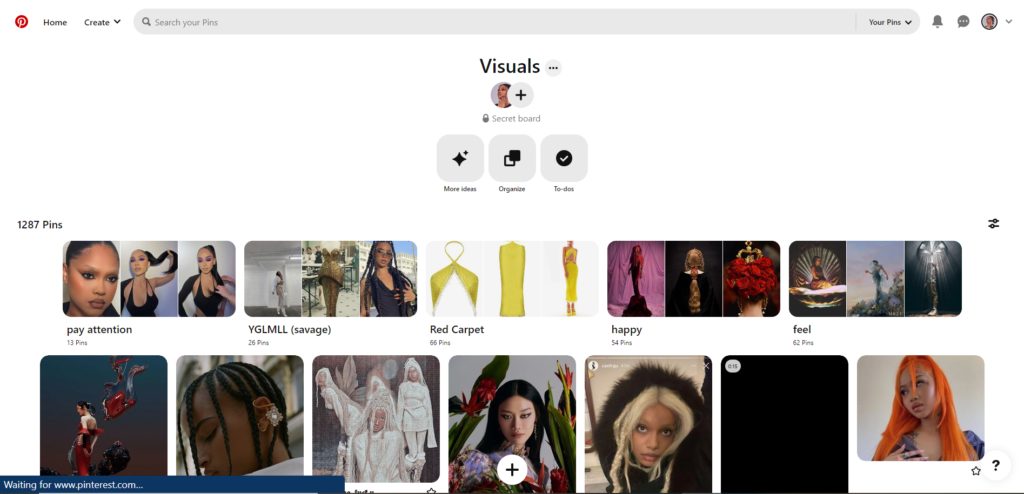
It’s interesting because I’m finding out now that many of these record companies want stuff like that. They won’t even sign you until they’re sure you’re marketable — and for a long time. So this is my safety net. Whenever a record label decides to approach me, I already have ten years’ worth of content to show. I’m just waiting for a platform, and while I wait, I’m working on having my own resources.
You call yourself the “Queen of Lagosians”. Why?
I come from an old Yoruba family that’s originally from Lagos. One time in 2019, I attended a family owambe, where I wore traditional lace and aso-oke with my mum’s corals. When I posted the photos on Instagram, my friends started calling me “Queen of Lagos”.
I changed it to “Queen of Lagosians” because I want to be the queen of people’s hearts, not just a location. I’m obsessed with royalty, so a while back I heard about this woman in history called Mary, Queen of Scots, who had a very sad life. And because sadness fascinates me, I’m obsessed with her too. Even though she was the sovereign queen of Scotland, she lived in France for a long time and had a French accent, so her people didn’t like her. She tried to endear herself to them by saying she was the Queen of “Scots”. Also, Princess Diana was asked in an interview whether she thinks she’d ever be the Queen of England. She said no, but that she wanted to be the queen of people’s hearts.
In my mind, I was like, I don’t want to be the Queen of Lagos. I want to be the Queen of Lagosians, queen of the people.
